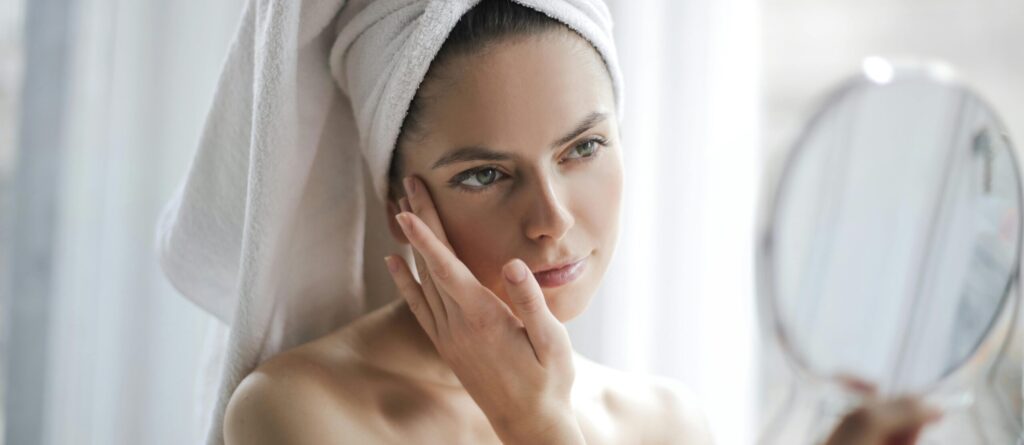
Introduction
Acne is a common skin condition that affects people of all ages, especially during adolescence. It occurs when hair follicles under the skin become clogged with oil (sebum) and dead skin cells, leading to the development of pimples or zits. In this blog, we’ll dive into the causes, types, and potential treatment options for acne, making it easier for you to understand this skin condition.
What Causes Acne?
- Clogged Hair Follicles: Hair follicles can get clogged when excess oil (sebum) and dead skin cells accumulate, preventing the natural shedding of skin cells.
- Bacteria Growth: When pores are clogged, bacteria that normally live on the skin grow in the plugged follicles, causing inflammation, redness, and pain.
- Hormonal Changes: An increase in male sex hormones (androgens) during puberty can cause the sebaceous glands to enlarge and produce more oil, which may result in acne.
- Other Factors: Certain medications, stress, and environmental irritants (such as pollution) can worsen acne.
Learn more about acne causes and symptoms
Types of Acne
- Whiteheads: These occur when hair follicles are clogged but remain under the skin, creating a white bump.
- Blackheads: When a clogged follicle reaches the skin’s surface and opens up, the sebum turns black due to oxidation.
- Papules: Small, inflamed, pink bumps that can be tender.
- Pustules: Papules that have a white or yellow pus-filled top, often red at the base.
- Nodules: Large, painful solid lesions that are lodged deep within the skin.
- Cystic Acne: The most severe form of acne, involving deep, painful, pus-filled lesions.
Who Gets Acne?
- Teens and Young Adults: Acne is most common during puberty, affecting both boys and girls.
- Adults: Acne can persist into adulthood, particularly in women.
- Genetic Influence: If your parents had acne, you might be more prone to it.
Common Myths About Acne
- Diet: There is limited evidence linking specific foods directly to acne, but some people may notice flare-ups after consuming certain items.
- Dirt: Blackheads are not caused by dirt but by the oxidation of sebum when it reaches the surface.
- Stress: While stress doesn’t cause acne, it can make existing acne worse.
How to Manage Acne
- Gentle Skin Care: Avoid scrubbing your skin too hard or using harsh products. Cleanse gently with a mild cleanser.
- Over-the-Counter Treatments: Products containing benzoyl peroxide or salicylic acid can help control acne.
- Prescription Medications: In severe cases, a dermatologist may prescribe stronger treatments, such as antibiotics or hormonal treatments.
- Lifestyle Modifications: Reducing stress, maintaining a healthy diet, and avoiding squeezing pimples can help improve your skin condition.
Find more skin care tips for acne-prone skin
FAQs
Q1: Can diet affect acne?
A: While no specific food causes acne, some studies suggest that high-sugar and dairy-rich diets may worsen the condition.
Q2: Is acne hereditary?
A: Yes, family history can influence your likelihood of developing acne.
Q3: How long does acne last?
A: For most people, acne diminishes by their 30s, but it can persist into the 40s and 50s for some.
Conclusion
Acne is a widespread skin condition that, although common, can be managed with proper care and treatment. Understanding its causes, types, and treatment options can help you take better control of your skin health.
Read more on acne treatment options
Related
Discover more from OATMI
Subscribe to get the latest posts sent to your email.


You must be logged in to post a comment.